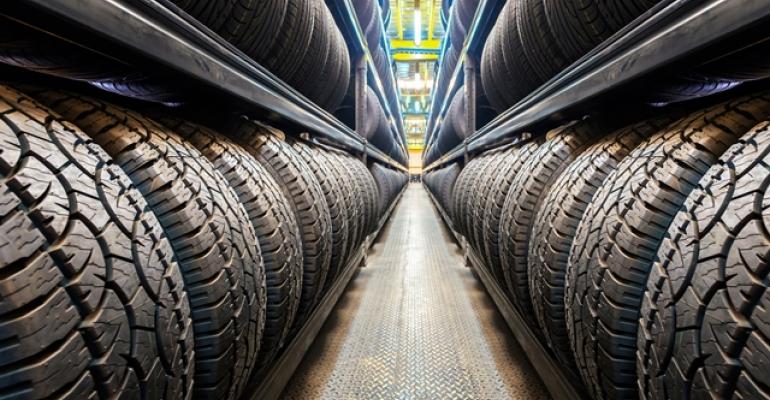DETROIT – General Motors launches an industry-first sustainable tire-purchasing initiative it hopes will drive the industry toward net-zero deforestation and improve human and labor rights.
“Our supplier partners are an extension of our company,” says Steve Kiefer, senior vice president-Global Purchasing and Supply Chain at GM. “We want to encourage affordable, safer and cleaner options for our customers that drive value to both our organization and the communities in which we work.”
Flanked here by executives from major tire makers Bridgestone, Continental, Goodyear and Michelin, Kiefer says he does not expect the program to add cost to the tires.
“It should maintain or even improve our cost structure,” he says.
GM purchases an estimated 49 million tires annually and believes sourcing them sustainably has a number of community, business and environmental benefits, such as addressing climate change, improving yield and quality for natural rubber farmers and mitigating business risk by ensuring long-term availability of the material.
An estimated 12 million tons of rubber is harvested annually and tire companies buy 75%. Despite the emergence of alternative materials for tires, future demand for natural rubber is expected to increase, says Jim DeMouy, vice president-Environmental, Health, Safety and Sustainability at Bridgestone.
Kiefer says the initiative is in its early stages and declines to offer a timeline for its implementation, but expects other automakers will follow suit to give the program momentum.
“We don’t know how big the issue is or how deep it goes,” he says of tracing rubber purchases back to what often are small, single-family farms in emerging Southeast Asian countries. “We’ll know more in couple of months (and) hopefully get some energy from around the industry and we can accelerate the progress.”
In addition to tire makers and other OEMs, GM says it also will be working with governments, rubber-making associations and environmental NGOs to drive alignment on the topic and reduce supply-chain complexity.





